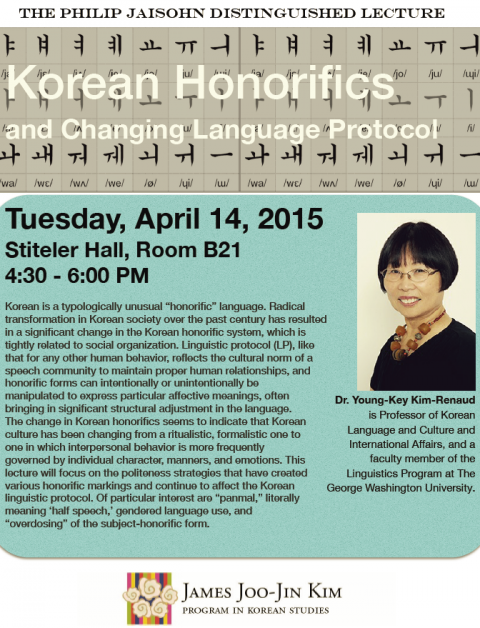
Stiteler Hall, Room B21
Young-Key Kim-Renaud, Professor of Korean Language and Culture and International Affairs; Chair, Department of East Asian Languages and Literatures
Korean is a typologically unusual “honorific” language. Radical transformation in Korean society over the past century has resulted in a significant change in the Korean honorific system, which is tightly related to social organization. Linguistic protocol (LP), like that for any other human behavior, reflects the cultural norm of a speech community to maintain proper human relationships, and honorific forms can intentionally or unintentionally be manipulated to express particular affective meanings, often bringing in significant structural adjustment in the language. The change in Korean honorifics seems to indicate that Korean culture has been changing from a ritualistic, formalistic one to one in which interpersonal behavior is more frequently governed by individual character, manners, and emotions. This lecture will focus on the politeness strategies that have created various honorific markings and continue to affect the Korean linguistic protocol. Of particular interest are “panmal,” literally meaning ‘half speech,’ gendered language use, and “overdosing” of the subject-honorific form.
 James Joo-Jin Kim Center for Korean Studies
James Joo-Jin Kim Center for Korean Studies